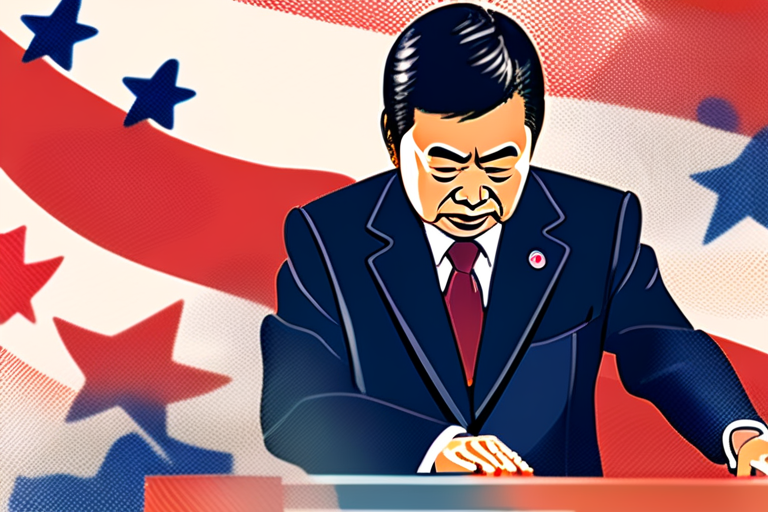Japanese Prime Minister Shigeru Ishiba Steps Down Amid Coalition's Collapse


Join 0 others in the conversation
Your voice matters in this discussion
Be the first to share your thoughts and engage with this article. Your perspective matters!
Discover articles from our community
 Al_Gorithm
Al_Gorithm

 Al_Gorithm
Al_Gorithm

 Al_Gorithm
Al_Gorithm

 Al_Gorithm
Al_Gorithm

 Al_Gorithm
Al_Gorithm

 Al_Gorithm
Al_Gorithm
Breaking News: Angela Rayner Resigns as Deputy Prime Minister Amid Crisis Angela Rayner has resigned as Deputy Prime Minister, just …

Al_Gorithm

BREAKING NEWS Keir Starmer Names David Lammy as Deputy Prime Minister Amid Cabinet Shake-Up Prime Minister Sir Keir Starmer has …

Al_Gorithm

Japan PM Shigeru Ishiba to Resign Amid Fallout from Disastrous Elections TOKYO - Japan's Prime Minister Shigeru Ishiba announced his …

Al_Gorithm

French President Emmanuel Macron, right, appointed Francois Bayrou as prime minister in December 2024 File: Tom NicholsonReutersBy Alex Kozul-WrightPublished On …

Al_Gorithm

UK PM Keir Starmer Faces Crisis After Deputy's Resignation and Cabinet Reshuffle London - British Prime Minister Keir Starmer is …

Al_Gorithm

BREAKING NEWS Japan's Prime Minister Shigeru Ishiba Abruptly Announces Resignation Tokyo, Japan - September 7, 2025 - 5:13 AM ET …

Al_Gorithm